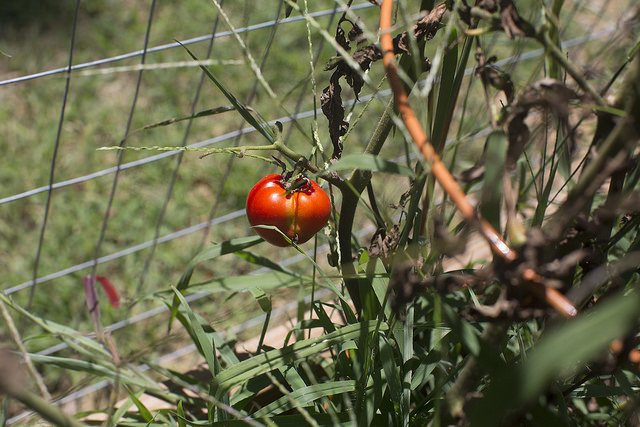Deadline: 31-Jul-20
The U.S. Department of Agriculture (USDA), Foreign Agricultural Service (FAS), Office of Capacity Building and Development (OCBD) seeks to stimulate and support the capacity of EAC countries to adopt and implement international phytosanitary standards and improve trade and food security in the region.
The activities supported by OCBD enhance the ability for EAC countries to work collectively as a region to harmonize standards, including procedures to better facilitate trade and prevent unnecessary delays and rejections at regional border crossings. The selected recipient will work with EAC, NPPOs and USDA/FAS to build the capacity of EAC member states to meet international phytosanitary standards and better harmonize and recognize phytosanitary systems within the region. These efforts will also help East African countries achieve their objectives under the African Continental Free Trade Area and contributions to the African Union’s Sanitary and Phytosanitary (SPS) Policy Framework for Africa.
The objective is to establish, convene, and participate in regional technical working groups that will inform the East African Community (EAC) in their effort to harmonize SPS protocols throughout the region. These activities will assist countries in implementing plant health regulations in line with both the WTO SPS and Trade Facilitation Agreements (TFA) while reducing technical barriers to trade. The program will build on the progress made under EAPIC and identify areas where harmonization and collaboration amongst countries will facilitate trade. This will also address how to work regionally to establish phytosanitary policies utilizing transparent scientific methods that meet international standards.
Examples of activities that may assist in achieving these outcomes are:
- Review of current efforts on plant disease prevention, surveillance and mitigation in the region with a view of developing a comprehensive plan of action to protect the region from the negative consequences of plant pests and diseases
- In coordination with the EAC, regional NPPOs, and other stakeholders, develop a road map for the development of a regional plant pest and disease prevention, surveillance and mitigation plan that will take into account the financial, human capacity and technical needs of the region.
- Analysis of current practices of integrated plant disease control and management with a view to scaling up the best lessons learnt in the EAC region.
- Creation of a coordination and communication protocol to help EAC for the management of plant disease outbreaks in a timely and efficient manner whenever they occur.
- To establish a symbiotic relationship between all plant disease and wider plant protection activities in the region in an integrated manner, taking into consideration various public instruments such as sanitary and phytosanitary (SPS) regulation and relevant texts that are in place at the continental, regional and national levels and Stakeholders.
- Building and developing standard operational procedures (SOPs) for phytosanitary measures upon current efforts in region and within the international community. ? Continue support to the EAPIC objectives:
- Work with EAPIC, individual countries, the EAC and other stakeholders such as TradeMark East Africa to ensure the PIMS database is workable for individual countries to enter data, individual countries are aware of how to enter data and the data will help support the PRAs and future verification of regional pests.
- Facilitate guidelines on how to adopt of these PRAs at the EAC country level
- Building on ongoing work with EAC, continue to move forward plans for a regional plant health working group, in coordination with the Food for Progress TRASE program.
- Quality assurance and certification, value addition, trade facilitation and business promotion in selected value chains, namely agro-industrial crops (coffee, tea and cacao) and horticulture.
- Work closely with USDA APHIS colleagues to help facilitate technical exchanges of African experts to travel to the US to learn about harmonization of phytosanitary practices, including inspection and other regulatory border activities, and improved food security and agricultural resilience from invasive pests. Activities would be conducted on a regional basis through the Africa regional plant protection organization, Inter-African Phytosanitary Council (AU/IAPSC).
- Provide technical trainings on science-based systems to gather analyze and disseminate information on the presence and prevalence of high-risk diseases, pests, or food safety hazards in the region.
- Provide technical assistance to conduct a survey to identify institutional gaps and pinpoint in adequacies that hinder the development of establishing an Africa NPPO plant health safeguarding capacity building program.
- Monitoring the program, evaluating progress in achieving objectives, and reporting outcomes.
Place of Performance
The recipient will work with countries within East Africa. Coordination of this work can be conducted within the United States, but foreign travel will be required to implement work with identified countries. Use of an in-country implementing partner may be beneficial due to international travel restrictions. Travel can be replaced by virtual meetings as possible to build the ability of countries to communicate remotely, and to facilitate implementation of the program during Covid 19 related travel restrictions.
Funding Information
- Estimated Award Amount: Up $500,000 total, subject to the availability of funding
- Period of Performance: 25 months
- Projected Period of Performance Start Date(s): September 1, 2020
- Projected Period of Performance End Date(s): September 30, 2022
- Anticipated First Budget Period: September 1, 2020 – August 31, 2021
Eligibility Criteria
- Eligible Applicants: State cooperative institutions or other colleges and universities in the United States.
- All applicants must have an active registration in the SAM database – pending or expired registrants are not eligible. This requirement must be met by the closing date of the announcement and will not be waived.
For more information, visit https://www.grants.gov/web/grants/view-opportunity.html?oppId=327964
